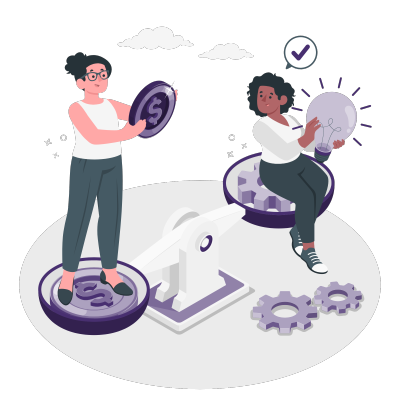Becoming a financial advisor can be a great career choice for entrepreneurs. There are pros and cons to becoming a financial advisor, and it is essential to understand these before making any decisions. In this article, we will explore the pros and cons of being a financial advisor to help you make an informed decision.
Pros of Being a Financial Advisor
First, let’s take a look at the pros of being a financial advisor.
Great Earning Potential
One of the biggest pros of being a financial advisor is the potential for high earnings. Financial advisors have the potential to earn a very good income, especially if they build a large client base. Advisors typically charge an hourly rate or a percentage of assets under management, so the more clients you have, the more money you can make.
You Provide Essential Advice
Another pro of being a financial advisor is providing an essential service. Financial advice is crucial for people of all ages and stages in life. Whether your clients are just starting out in their careers or are nearing retirement, they need good financial advice to make sound decisions about their money.
Flexible Schedule
Another big pro of being a financial advisor is that you can often create your own schedule. If you build up a large enough client base, you may be able to work part-time or even set your hours. This can be an excellent perk for entrepreneurs who want the flexibility to work around other commitments.
Low Startup Costs
Another positive of becoming a financial advisor is that the startup costs are relatively low. You will need to get some training and education, but you won’t need to invest in expensive equipment or office space. This makes financial advisory a great option for entrepreneurs looking to start their businesses on a tight budget.
Cons of Being a Financial Advisor
Now let’s take a look at some of the potential downsides of being a financial advisor.
Stressful Work
One downside of being a financial advisor is that it can be a very stressful job. Advisors often deal with clients who are worried about their finances and may face challenging life decisions. This can be emotionally draining, and preparing for the stress that comes with this job is essential.
It Can Take A While To Build A Client Base
Another downside of being a financial advisor is that it can take a while to build a client base. Finding clients willing to work with you may take months or even years. This can be frustrating for entrepreneurs who want to get their business up and running quickly.
Willpower Is Required
Another downside of being a financial advisor is that it requires a lot of self-discipline and willpower. Advisors need to be able to stick to a budget and make smart financial decisions. This can be difficult for some people, and it is essential to ensure you are up for the challenge before becoming a financial advisor.
Long Work Hours
One final downside of being a financial advisor is that you may have to work long hours. This is especially true when you are first starting out and trying to build up your client base. Advisors often work evenings and weekends to meet with clients and attend events.
Conclusion
These are just some of the pros and cons of being a financial advisor. It is important to weigh these factors before making decisions about your career. If you think financial advisory may be right for you, it is time to start exploring your options and learning more about this exciting field.

